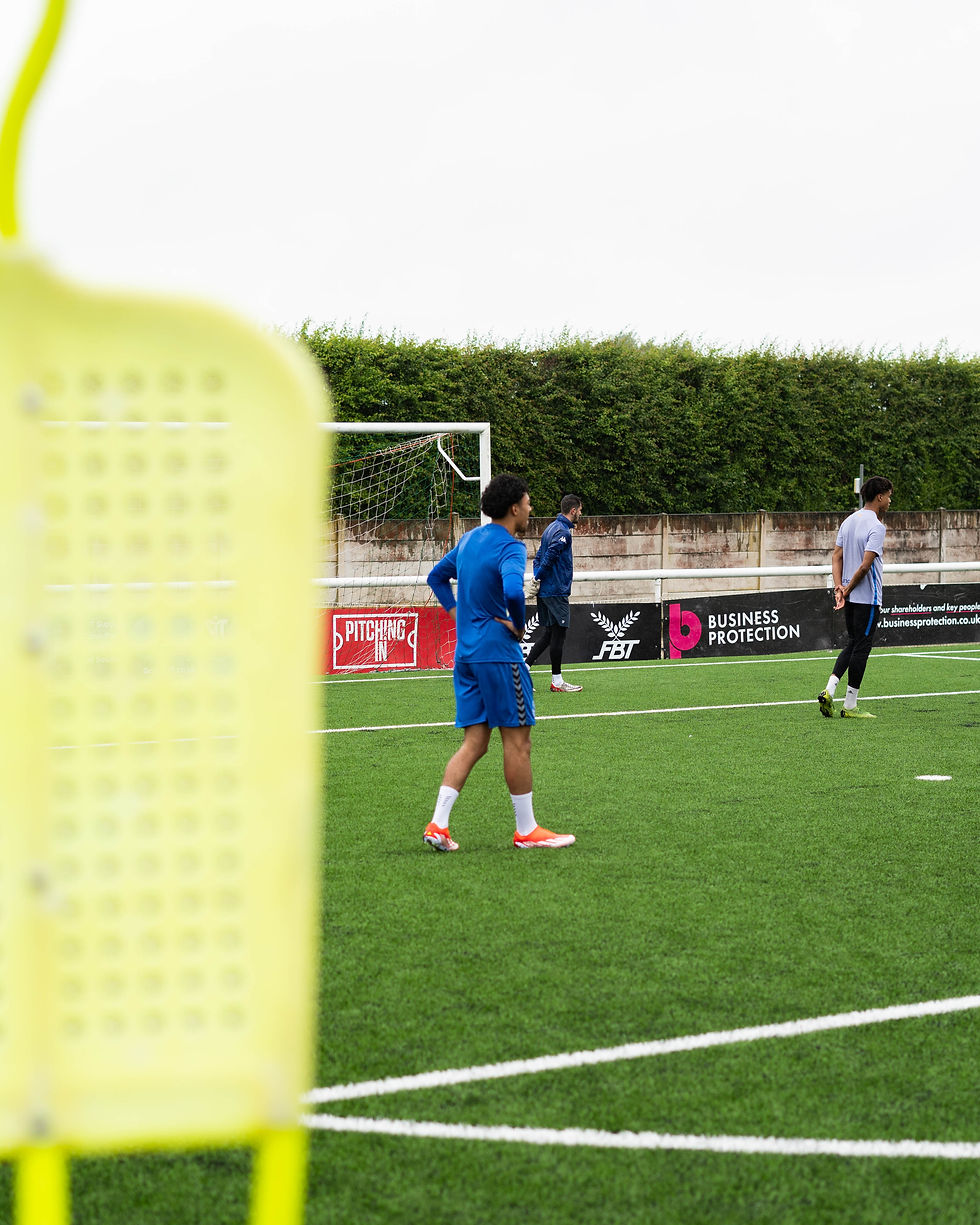Building Mental Resilience in Football: Tips for Young Players
- Conor Thomas
- Aug 16, 2024
- 3 min read
Mental resilience is one of the most important qualities for success in football. Talent and skill will only take a player so far; it’s the ability to handle setbacks, pressure, and challenges that often makes the difference between a good player and a great one. For young players, building mental toughness early can pave the way for a stronger, more confident career in the sport. In this post, we’ll explore what mental resilience means in football and offer practical tips to help young players develop it.

What is Mental Resilience in Football?
Mental resilience, often referred to as mental toughness, is the ability to stay focused, positive, and motivated even when faced with adversity. Whether it’s bouncing back from a tough loss, staying calm under pressure, or pushing through difficult training sessions, mental resilience helps players perform consistently and maintain their confidence.
At Conor Thomas Academy we understand that challenges come in many forms – injuries, being taken out of the team, making mistakes on the pitch, or dealing with criticism. Mentally resilient players can take these setbacks in stride and use them as fuel for improvement.
Why Mental Resilience Matters
Handling Pressure – Football is a high-pressure sport, especially in competitive matches. Whether it’s taking a penalty in a crucial moment or defending a slim lead, mentally resilient players can maintain composure under pressure.
Overcoming Mistakes – Every player makes mistakes, but it’s how you respond that counts. Mentally strong players can quickly shake off errors and refocus on the game instead of dwelling on them.
Consistency – Mental resilience allows players to perform at a high level consistently, regardless of external conditions like a tough opponent, an unfamiliar pitch, or the weather.
Bouncing Back from Defeat – Losses and setbacks are inevitable in football. A resilient mindset helps players move on from defeat and use it as motivation to improve.
Our tips for Building Mental Resilience

Set Clear, Realistic Goals - Goal setting is key to staying motivated and focused. Break down long-term ambitions into smaller, achievable goals. For instance, instead of focusing solely on becoming a professional footballer, set targets like improving your weak foot or increasing your fitness level. Achieving these smaller goals builds confidence and keeps you on track.
Embrace Challenges as Learning Opportunities - Every player faces challenges, whether it’s struggling with a certain skill or being outperformed by an opponent. Rather than seeing these as setbacks, view them as opportunities to learn and grow. Adopting a growth mindset – where you see improvement as a journey – is vital for mental resilience.
Develop a Pre-Game Routine - A strong pre-game routine can help settle nerves and prepare you mentally for matches. This could include listening to your favourite music, visualising key actions on the pitch and focusing on deep breathing exercises. A consistent routine creates a sense of control and keeps negative thoughts at bay.
Learn to Control the Controllables - In football, many factors are out of your control, like refereeing decisions or the performance of your teammates. Mentally resilient players focus on what they can control – their attitude, effort, and reactions. By focusing on these controllables, you minimise distractions and stay focused on the game.
Develop Positive Self-Talk - The way you talk to yourself can make a huge difference in how you handle pressure. Replace negative thoughts like "I’m going to mess up" with positive affirmations such as "I’ve trained for this; I’m ready." Over time, this practice will become a habit, helping you stay confident even in high-stress situations.
Learn to Reflect and Move On - After every match or training session, take some time to reflect on what went well and what could be improved. However, it’s equally important to know when to move on. Don’t dwell too long on mistakes or losses – learn from them and focus on what you can do better next time.
Stay Balanced and Take Breaks - Building mental resilience isn’t just about pushing through tough times; it’s also about knowing when to take a step back. Burnout can be a real issue for young players who push too hard without rest. Make sure you’re balancing your football commitments with downtime, school, and other activities you enjoy. A happy mind should be your priority.
Final Thoughts
Building mental resilience takes time, just like any other skill in football. By setting goals, focusing on what you can control, and maintaining a positive mindset, you’ll not only become a stronger player but also a more confident and adaptable person off the pitch. Remember, challenges and setbacks are part of the journey – it’s how you respond to them that defines your path forward.
With these tips, young footballers can develop the mental toughness needed to navigate the ups and downs of the game, turning obstacles into opportunities for growth and success.
Remember - we’re here in your corner at Conor Thomas Academy should you need any support.




Comments